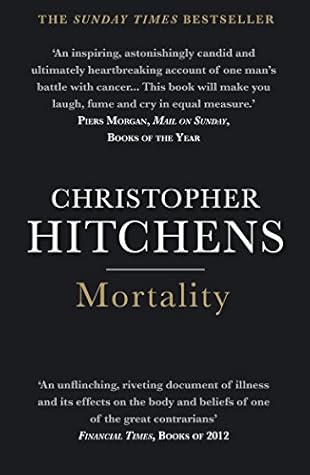More on this book
Community
Kindle Notes & Highlights
or Islam would inevitably lose me many prayers from both factions. I sympathize afresh with the mighty Voltaire, who, when badgered on his deathbed and urged to renounce the devil, murmured that this was no time to be making enemies.
Prayer: A petition that the laws of nature be suspended in favor of the petitioner; himself confessedly unworthy.
Everybody can see the joke that is lodged within this entry: The man who prays is the one who thinks that god has arranged matters all wrong, but who also thinks that he can instruct god how to put them right. Half-buried in the contradiction is the distressing idea that nobody is in charge, or nobody with any moral authority. The call to prayer is self-cancelling. Those of us who don’t take part in it will justify our abstention on the grounds that we do not need, or care, to undergo the futile process of continuous reinforcement. Either our convictions are enough in themselves or they are
...more
Tinseltown; in Tumortown you sometimes feel that you may expire from sheer advice. A lot of it comes free and unsolicited. I must, without delay, begin ingesting the granulated essence of the peach pit (or is it the apricot?), a sovereign remedy known to ancient civilizations but now covered up by greedy modern doctors. Another correspondent urges heaping doses of testosterone supplements, perhaps as a morale-booster. Or I must find ways of opening certain chakras and putting myself in an appropriately receptive mental state. Macrobiotic or vegan diets will be all I require for nourishment
...more
And poetry began with the voice as its only player and the ear as its only recorder. Indeed, I don’t know of any really good writer who was deaf, either.
In particular, I have slightly stopped issuing the announcement that “whatever doesn’t kill me makes me stronger.” In fact, I now sometimes wonder why I ever thought it profound. It is usually attributed to Friedrich Nietzsche: Was mich nicht umbringt macht mich stärker. In German it reads and sounds more like poetry, which is why it seems probable to me that Nietzsche borrowed it from Goethe, who was writing a century earlier. But does the rhyme suggest a reason? Perhaps it does, or can, in matters of the emotions. I can remember thinking, of testing moments involving love and hate, that I
...more
Reasoning on this after one especially horrible experience from which he had eventually recovered, he decided that he would after all rather have died: I lay at the point of death. A congestive heart failure was treated for diagnostic purposes by an angiogram that triggered a stroke. Violent and painful hiccups, uninterrupted for several days and nights, prevented the ingestion of food. My left side and one of my vocal cords became paralyzed. Some form of pleurisy set in, and I felt I was drowning in a sea of slime. In one of my lucid intervals during those days of agony, I asked my physician
...more
made Sidney Hook “stronger.” Indeed, if anything, it seems to have concentrated his attention on the way in which each debilitation builds on its predecessor and becomes one cumulative misery with only one possible outcome. After all, if it were otherwise, then each attack, each stroke, each vile hiccup, each slime assault, would collectively build one up and strengthen resistance. And this is plainly absurd. So we are left with something quite unusual in the annals of unsentimental approaches to extinction: not the wish to die with dignity but the desire to have died.


